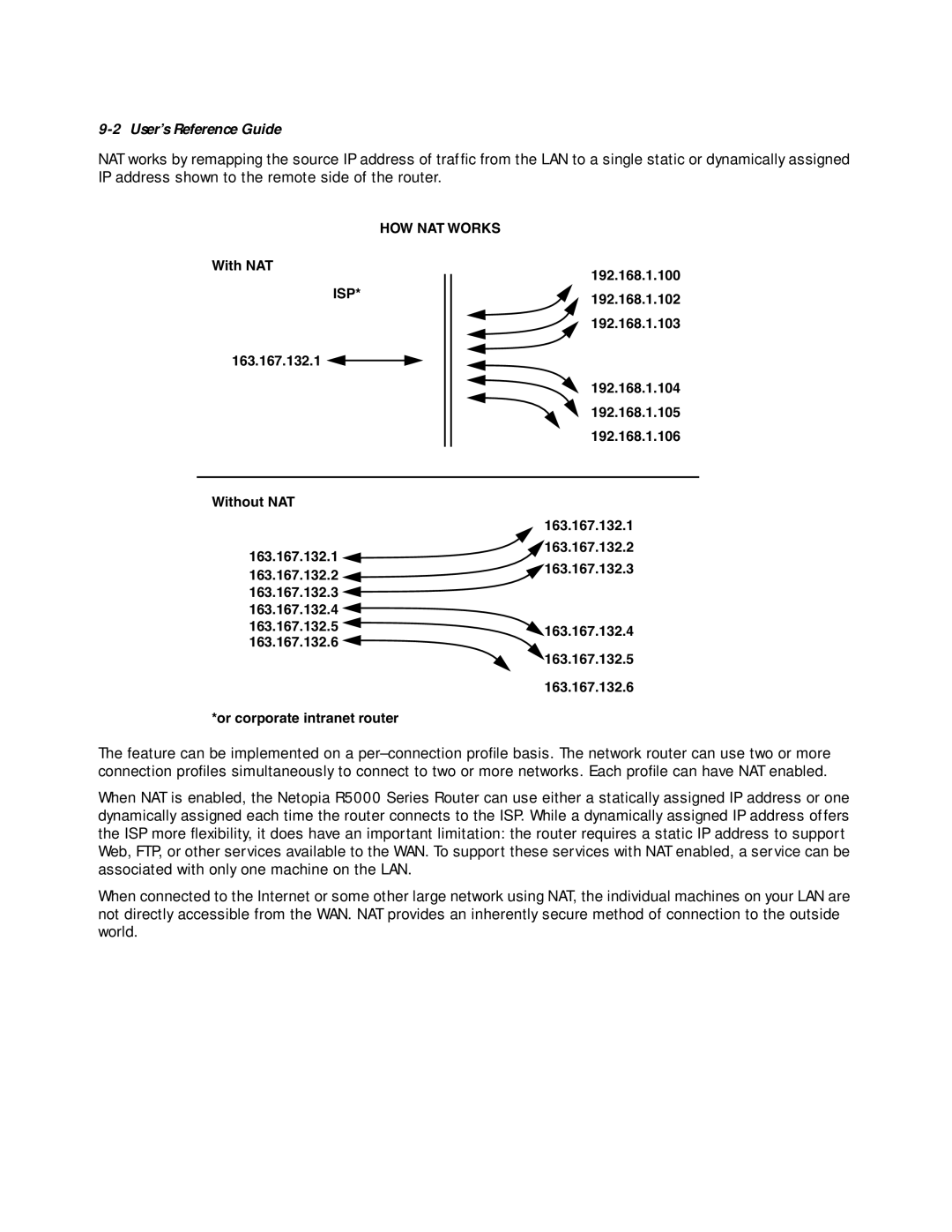
9-2 User’s Reference Guide
NAT works by remapping the source IP address of traffic from the LAN to a single static or dynamically assigned IP address shown to the remote side of the router.
HOW NAT WORKS
With NAT
192.168.1.100
ISP*![]() 192.168.1.102 192.168.1.103
192.168.1.102 192.168.1.103
163.167.132.1 ![]()
192.168.1.104
192.168.1.105
192.168.1.106
Without NAT |
| |
| 163.167.132.1 | |
163.167.132.1 | 163.167.132.2 | |
163.167.132.3 | ||
163.167.132.2 | ||
| ||
163.167.132.3 |
| |
163.167.132.4 |
| |
163.167.132.5 | 163.167.132.4 | |
163.167.132.6 | ||
| ||
| 163.167.132.5 | |
| 163.167.132.6 | |
*or corporate intranet router |
|
The feature can be implemented on a
When NAT is enabled, the Netopia R5000 Series Router can use either a statically assigned IP address or one dynamically assigned each time the router connects to the ISP. While a dynamically assigned IP address offers the ISP more flexibility, it does have an important limitation: the router requires a static IP address to support Web, FTP, or other services available to the WAN. To support these services with NAT enabled, a service can be associated with only one machine on the LAN.
When connected to the Internet or some other large network using NAT, the individual machines on your LAN are not directly accessible from the WAN. NAT provides an inherently secure method of connection to the outside world.
